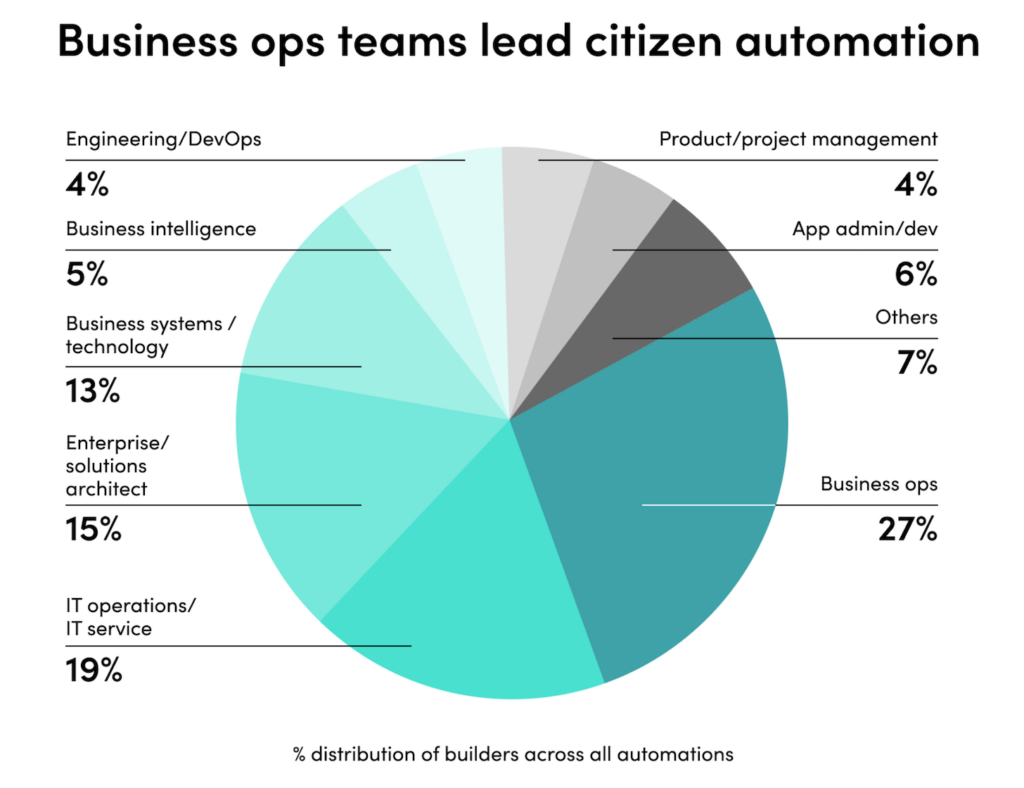“Starting in 2013, after the CMO realizes that he/she does not have the skill sets in place for data analytics proficiency, 50% of new marketing hires will have technical backgrounds.”
That is prediction #5 on IDC’s Top 10 CMO Predictions for 2013, released last week by analysts Rich Vancil and Kathleen Schaub.
I dream about bold declarations like that from mainstream analysts, validating the central hypothesis of this blog: marketing is now a technology-powered discipline, and therefore marketing organizations must infuse technical talent into their DNA. According to my wife, I even talk about this in my sleep, which is an entirely different context for “disruptive” innovation.
But really? 50% of all new hires in marketing this year will have a technical background?
That’s a mighty bold declaration. Okay, I buy the premise: for many CMOs, 2013 will be the tipping point in recognizing just how much their destiny is wrapped up in data and technology. Survival instincts will kick in, and yes, we’ll see a widespread movement to technolog-ify marketing departments from the top-down.
But there will be limits to how quickly this transformation can occur.
First, there’s a real scarcity of technical professionals, even more so for those with passion and aptitude for marketing. And there will be enormous competition for those unicorns, not just from other marketing departments, but from marketing software vendors, consulting firms, agencies, and a whole new bumper crop of start-ups, all of whom need this talent in pursuit of their missions. Expect some serious inflationary pressure on these salaries.
Obviously some of this depends on how you define the word “technical.” For now, let’s assume it’s more than a superficial label for anyone who can use Excel and WordPress.
Second, marketing departments have to develop the capability to successfully manage and culturally integrate technical professionals. This is harder than it may seem. Managing technical talent is challenging enough in an all-tech discipline, such as engineering or IT. Managing such talent in a rapidly evolving, cross-discipline environment — the emergent “new marketing” — will have many more nuances to master. Most marketing executives don’t have that experience yet.
Start with the hiring: how do you know who to hire? What skills to look for? How to validate them? Do the recruiters you work with understand this new breed? Know where to find them? Appreciate what kind of opportunities and incentives will motivate them to want to work with you?
Once they’re hired, how do you organize them in the department? How will they structurally collaborate with other parts of the marketing team? What’s their interface to IT? Who reports to who, direct or matrixed? What budget do they have — is it net new or reallocated from somewhere else? How do you measure their performance? What should you expect? What other confounding variables in the organization may hinder that performance? When there are conflicts, what factors should you weigh in resolving them?
How do you acclimate the rest of your marketing team to their new technical peers? How do you synthesize a culture between brilliant marketers who are non-technical — your creatives, your evangelists, your product managers — and these new technical and analytical additions to the team? How do you promote learning and growth from cross-pollination of ideas and experiences and avoid infighting and turf wars?
How do you coach and lead technical marketers to greater success — for your organization and their careers?
Developing this new kind of management capability in the marketing department is essential. But in the rush to hire technical talent, don’t underestimate the work required to build an environment where that talent can be successful.
My recommendation would be to start with a seed crystal: hire someone who can be a leader around which a technical marketing team can be grown. This is the role of the chief marketing technologist — or whatever “marketing CTO”-like title you prefer. The role is about more than being responsible for marketing technology strategy and operations.
More than anything, a chief marketing technologist should be the champion of making marketing an environment in which other technical professionals can thrive and contribute to their full potential.
I know, now you’re looking for the triple threat: someone with technical skills, marketing skills, and good management skills. Rare, but not impossible to find. I talked with two great candidates who fit that profile just last week (email me if you’d like an introduction). And one strong person in this role, with the mandate from the CMO, can go a long way towards building the capability to be successful with a larger cohort of technical marketing hires.
Only then will marketing truly be ready to ramp up its technical hiring.




Finally, someone had the courage to admit it. nice article.
In the traditional world, we used to have marketing people “doing time” with various other functions so that they understand the big picture and use it in their marketing and it is more unified when they plan campaigns. Customer-message becomes perfect when they do this is what the belief was. It has worked well. I recommend the same now with “technology” for marketing professionals. Generally for general management and top management jobs also traditionally CMOs have been a good bet. So it is easier to bring in the necessary “technology” skills in marketing department. Hire a technical person and teach marketing might not be a great idea. A marketer “doing time” is a much better idea and works and has track record over the years. Hire a marketing guy. Prepare him to work with technology. When they become management guys, you have the new culture. Good Post. Keep them coming.
Your observations about the challenges to bringing marketing technology skills and leadership into the organization are well-thought out. Especially important is your point about the scarcity of skills.
This prediction – 50% of new hires – refers to the genuinely new positions being created in marketing today. What IDC has seen is that companies are reducing positions in traditional functions such as marketing communication and PR and replacing them with positions for people with new skills – primarily “quant”, process skills, and other technology and science-related skills.
The companies we talked to have told us that the ideal people, those with the combination of technical, marketing, and management as you describe, are extremely rare. So, CMOs are compromising and being creative.
Where are these people coming from? Many companies are hiring people with strictly technical or analytic skills and plan to train the newbies in marketing. A surprising number of people who didn’t expect careers in marketing are surfacing. People with experience in supply-chain or logistics management, for example. And there are marketers who are digging science elements out of their backgrounds, perhaps from grad school or someone who participated in a CRM implementation years ago, and putting them to work.
The road ahead will definitely be long and bumpy. Marketing science and technology is both an opportunity and a risk to the CMO. However, I’ve been impressed with the inventiveness I’ve seen so far.
– Kathleen Schaub, IDC @kathleenschaub
Kathleen — thanks for a great comment and shedding more light on the context of your prediction.
The idea of bringing in non-marketing technical talent and training them on marketing is a good one. I like it because it cross-pollinates a broader set of perspectives. For instance, having someone with supply-chain or logistic experience, seems like it could indeed bring a number of innovative approaches to the burgeoning “marketing operations” challenge.
My only caution would be that much of marketing’s “data” is much softer than traditional IT, operations, or science functions. And the data is ultimately only valuable if it can be harnessed in the service of delivering better (and more profitable) customer experiences. While this conceptually has a natural heritage with traditional marketing, the actual reality of implementing this is very different. So I still think CMOs would benefit significantly from at least a few linchpins who have synthesized the marketing and the technology together — I’m not a big fan of the label, but the “growth hackers” of Silicon Valley are a great example of this kind of talent. They can help make sure that the technical people who are being trained on marketing are being trained on the *new* kind of marketing that can really best harness their capabilities.
Great idea, Varadh. There’s nothing quite like living something “on the ground” to truly appreciate its dynamics.
Great Post.
If marketing departments have trouble integrating technical professionals, it’s no wonder. You look at the marketing departments in colleges. Even at top business schools, the education about online and search engine methods is sparse or non-existent. They’ll have better luck working with these people once they start learning with them.
I was thinking about what I wrote yesterday and there was something that I wanted to add to it.
I don’t think that it would be too difficult to incorporate an online education into a marketing program, but I do wonder if there would be any way to actually keep it up-to-date. It seems that this business moves way too quickly to actually offer any real education that wouldn’t be obsolete by the time they were tossing their graduation caps in the air.
An effective solution might be actually requiring a technical minor to go along with a marketing degree. It’s not like modern marketing can even be done without consideration for the fact that more and more of it is being done exclusively online.
If I were a Dean, I would require web development, basic coding, or something related as a requirement for graduation. It’s going to be a little uncomfortable for those who come into the program thinking they’re Don Draper and expecting their “creative genius” to be the sum of the contribution they’re required to make—but ultimately, they’ll be better off for it.
Great post. It really spoke to me because I’m passionate about web development, database management, and other technical things, and I’m also getting an MBA in marketing. I would love to have a marketing position that requires me to exercise my technical background. Thanks for giving me some hope for the future!
Pingback: 50 Traffic Tips for Content Marketers [INTERACTIVE] » Informly - Informly
I don’t think either of these approaches- teaching marketing to a technical expert or technology to marketing expert would be sufficient here. I think we require a new kind of professional here who has studied/practiced both of these deciplines with certain degree of depth. He/she might not be adept to the same degree in both deciplines but can comfortably leverage one while working on the other. Incidently this kind of professionals are already in the making.In most MBA programs the biggest part of graduates come from engineering/sciences/technical background who have not only studied these technical deciplines but have also practiced them for few years before joining MBA programs. Many of these MBAs who have opted for Marketing as a major and have certain degree of passion for both marketing and technology can be effectively utilized in new roles in marketing. I think people who can recognize this talent are more scarce than talent itself.